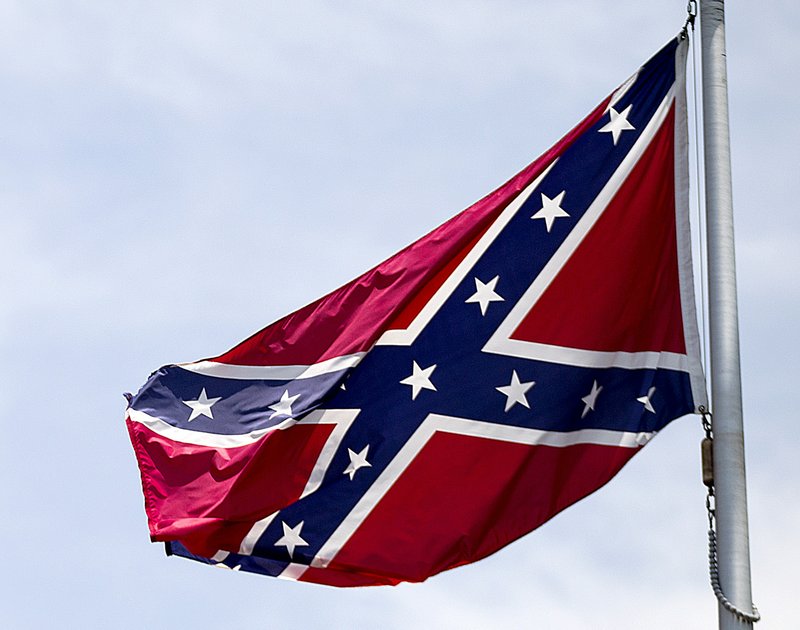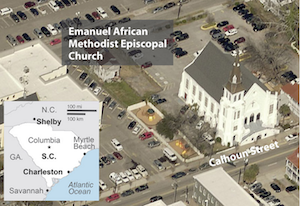WASHINGTON -- The Republican-controlled U.S. House of Representatives scrapped a vote on permitting the Confederate flag at National Park Service-run cemeteries Thursday after Democrats complained that the banner celebrates a dark past.
"What exactly is the tradition of the Confederate battle flag that we're supporting?" asked Rep. Hakeem Jeffries, D-N.Y.
"Is it slavery, rape, kidnap, treason, genocide or all of the above?" he asked.
No Republican rose to respond, although some officials privately said Democrats had falsely accused GOP lawmakers of racism. They noted the proposal would merely have written the White House administration's policy into law.
House Speaker John Boehner, R-Ohio, referring to the imminent removal of the flag from the Statehouse grounds in South Carolina, said it was time for "adults here in Congress to actually sit down and have a conversation about how to address the issue."
In response, Democrats ratcheted up their criticism, even though White House spokesman Josh Earnest declined to answer directly when asked if President Barack Obama would order the Park Service to ban the flag in its cemeteries.
Instead, Earnest criticized Republicans, whom he said "voted for a party leader who once described himself as, quote, 'David Duke without the baggage.'"
He referred to Rep. Steve Scalise, R-La., the third-ranking GOP leader. Duke is a former leader of the Ku Klux Klan.
Scalise's spokesman responded that the White House and Democrats "have chosen to respond with cheap political attacks that are beneath the dignity of their offices." The spokesman, Chris Bond, also said Scalise supported removing the flag in South Carolina.
The U.S. House proposal would have permitted the limited display of the Confederate flag at Park Service-run cemeteries in states that observe a holiday commemorating the Confederacy, and only at the graves of rebels who died in the Civil War.
In line with a Park Service memorandum from 2010, it would have affected 10 graveyards -- four in Tennessee, three in Virginia and one each in Louisiana, Mississippi and Georgia.
The number of graves was unknown, but Park Service spokesman Kathy Kupper said there was one at Andersonville cemetery in Georgia and two each at Shiloh in Tennessee and Vicksburg in Mississippi.
For her part, House Democratic leader Nancy Pelosi offered legislation to remove all state flags containing any portion of the Confederate battle flag from the House side of the Capitol, and said she would try again today.
Boehner's spokesman, Kevin Smith, said that amounted to a "cheap political stunt" after the speaker had called for private talks on the issue. He said the bipartisan discussions could potentially address Confederate symbols within the Capitol as well as at parks and cemeteries.
Republicans prevented a vote on Pelosi's proposal by sending it to a committee for review -- but Democrats slowed the tally by casting their votes manually instead of through an electronic tally system that is customarily employed.
Rep. John Lewis, D-Ga., a veteran of the civil-rights era, said that was a form of nonviolent protest of the type used a half-century ago.
The developments in the House were the latest relating to the Confederate flag debate stemming from the shooting deaths last month of nine black Bible study participants in a South Carolina church. The shooting suspect has been seen in Internet photos posing with the flag and other Civil War relics.
Earlier in the week, lawmakers decided by voice vote and to ban the display of the Confederate flag in Park Service-run cemeteries.
But GOP leaders soon became concerned that the overall spending measure it was attached to might fail -- Democrats oppose it because they want more spending, and some Republicans were unhappy with the prohibition on the flag.
That led briefly to plans to reconsider the prohibition, and then a highly unusual statement by the measure's chief Republican sponsor after the subsequent decision to reverse course.
Rep. Ken Calvert, R-Calif., said the now-abandoned proposal "had been brought to me by leadership at the request of some southern" GOP lawmakers, and also would have written into law existing National Park Service regulations approved by the Obama administration.
At the same time, he said he regretted not telling Democrats in advance about his plans.
Information for this article was contributed by Erica Werner, Jim Kuhnhenn and Emily Wagster Pettus of The Associated Press.

